Hard Drive Freezer Method: Melting the Freezer Data Recovery Myth
We Hate the Hard Drive Freezer “Trick”
As Wisconsinites, whether we’re in the sweltering throes of another record-breaking summer or the dead of winter, colder temperatures will always be on our minds… and with it, one of our most hated DIY data recovery tricks as well: putting your hard drive in the freezer to repair whatever damage is making it click or beep or just not work.
On our blog, we’ve talked about a few of the common data recovery myths floating around the Internet. Some of these, like simple control board swaps, we’ve discussed at length.
We’ve talked about the dangers of opening up a hard drive by yourself. But there is one myth we’ve devoted far too little of our efforts toward dispelling. And that myth is the hard drive freezer method (although we’d rather call it a trick).
On the list of the many things we wish people would stop doing to their failed hard drives, the hard drive freezer trick is right at the top. We hate the freezer trick. Hate it, hate it, hate it. And not in the clickbait-y “Doctors hate her! See how this single mom lost 20 pounds in a week” way.
We’ve received more cases than we could ever want where a minor hard drive problem became exponentially worse due to this destructive tidbit of subzero pseudoscience. It can destroy critical data, it gives our engineers headaches, and most importantly, it makes hard drive repair more difficult (which in turn raises the cost of data recovery).
What happens when you freeze a hard drive?
Freezing your hard drive is a bad idea, and no one should do it or recommend doing it anymore. Give this video showing the results of this trick a watch or keep reading this page to learn more:
Putting hard drive in freezer = bad

What Is the Hard Drive Freezer Trick?
If you look around the Internet for DIY data recovery methods, you’re bound to find the hard drive freezer trick. This will come along with other unsavory HDD recovery methods you can try at home, like ordering a replacement PCB off of eBay, tapping the drive with a hammer (or giving it the “four-foot drop test”), or warming up your oven on the lowest setting and sticking your hard drive in it for a minute. We won’t name names, but yes, we’ve seen this “advice” online, and it mostly just secures your data’s chances of no one being able to recover it.
There are a few variations of the freezer trick that come recommended by various DIY practitioners. According to some sources, you should pop your failed hard drive in for just a few seconds (a minute at most). Other proponents advise you to let it sit for 12 to 48 hours. Most proponents of the hard drive freezer trick are aware of what happens when you freeze things and then warm them up (put some ice cubes in a glass of water and see for yourself), and now suggest double-bagging the drive in airtight Ziploc bags before you freeze it. After you remove the drive from the freezer, according to some resources, you only have a limited window of opportunity to read data from the drive before it warms up and breaks down again.
Unfortunately, we’ve seen plenty of evidence in our lab that freezing your hard drive just makes things worse. Even when they’ve been “properly” double-bagged before getting put into the freezer to re-enact the origin story of Captain America, there’s still plenty of opportunity for even a little bit of moisture to condense on those platters. And moisture + hard disk platters = a bad time.
The bags help, if by “help” you mean “might keep my hard drive from suffering truly catastrophic internal damage,” but you were probably expecting a different kind of “help” when you decided to put your hard drive into the freezer.
Hard Drive Freezer Method: Don’t Do It.
Our data recovery experts utterly despise the hard drive freezer trick. Our CEO Brian Gill, who has seen more than his fair share of frostbitten hard drives since founding Gillware in 2003, has a simple piece of advice regarding the hard drive freezer data recovery trick:
“Don’t &#@%ing do it.” – Brian Gill – CEO, Gillware Data Recovery
Why so much vitriol for this particular DIY data recovery method, though? What makes it so much worse than all of the other tricks for retrieving data from a physically failed hard drive floating around the Internet? To answer that question, take a look at that video we put at the beginning of this article in which we do the “freezer trick” and show you the results. Next, we will examine just what exactly the hard drive freezer trick is, and you’ll learn more about what it does to your unfortunate hard drive.
If you thinking of throwing your hard drive in the freezer please

Hard Drive in Freezer: Does it Work?
Let’s cut right to the chase.
Putting your hard drive in the freezer does not work. It does not fix any serious problems with your hard drive. In fact, it can (and does) severely damage your hard drive. The hard drive freezer trick has at best a 50% chance of doing nothing and a 50% chance of making things even worse.
There are no DIY hard drive repair tricks out there that actually work reliably to recover data from a broken hard drive. Mainly because if there were, our engineers would use them to save on the operating costs of running a data recovery lab and make our services even less expensive!
Your freezer is not the right place for a hard drive.
A professional data recovery lab is.
The Idea Behind the Freezer Trick
Sure, computer components and machinery break down as they overheat—that’s common knowledge. Some supercomputers have used Freon refrigerant to dissipate heat, while a hardcore gamer may turn to liquid nitrogen to cool their gaming rig. The idea that excessive heat is bad for computer components is widely known. But not quite so widely known is that excessive cold, and in particular excessive and rapid temperature change is bad for your hard drive as well. Perhaps this is one reason why the hard drive freezer trick persists to this day.
There are two general ideas that lead people to suggest the freezer trick. The first idea is that your hard drive’s problem has something to do with excess heat (perhaps a problem with the printed control board). A quick sojourn into your icebox and back out will cool it down and temporarily resuscitate it.
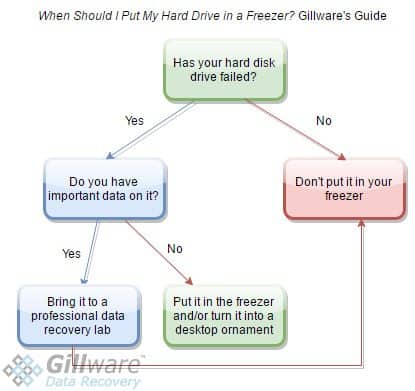
The second idea is that the cold will cause the hard disk platters to ever-so-slightly shrink, and this will somehow unstick read/write heads that have crashed onto the platters and give you a fleeting window of opportunity to get your data back. It’s a Hail Mary shot. But it’s cheap, and it works to save your data, right? (No, not really, sadly.)
Sure, you will hear people say that the freezer trick works. You may even hear your local computer repair technicians swear by the hard drive freezer trick. But these people are playing a dangerous game with your data.
Just like pseudoscience in the world of medicine, the freezer trick “works” just barely often enough to encourage people to spread the idea to friends and neighbors. And when it “works” it is only because the user was lucky enough that the method did nothing harmful (or beneficial) and the drive was merely exhibiting intermittent behavior that coincidentally cleared up. There’s a 99.9% chance that not putting it in the freezer also would have saved your data and resulted in the same data recovery outcome… so why risk it?
Data Recovery Software to recover
lost or deleted data on Windows
If you’ve lost or deleted any crucial files or folders from your PC, hard disk drive, or USB drive and need to recover it instantly, try our recommended data recovery tool.
Retrieve deleted or lost documents, videos, email files, photos, and more
Restore data from PCs, laptops, HDDs, SSDs, USB drives, etc.
Recover data lost due to deletion, formatting, or corruption
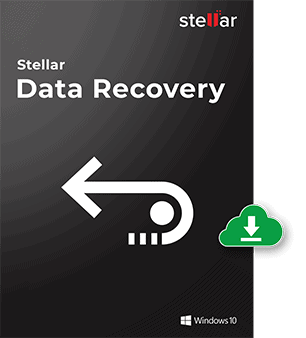
What Really Happens When You Freeze a Hard Drive?
With the exception of today’s state-of-the-art helium and nitrogen-filled high-capacity drives, hard disk drives all have a tiny breathing hole on their faceplate. This hole allows the air pressure both inside and outside the drive to equalize. The filter behind the breathing hole normally refuses to permit liquids. But it cannot disallow water in a gaseous form. If the air around (and inside) a hard drive is excessively humid, it can cause a catastrophic failure. This is actually a notable problem faced in many data centers.
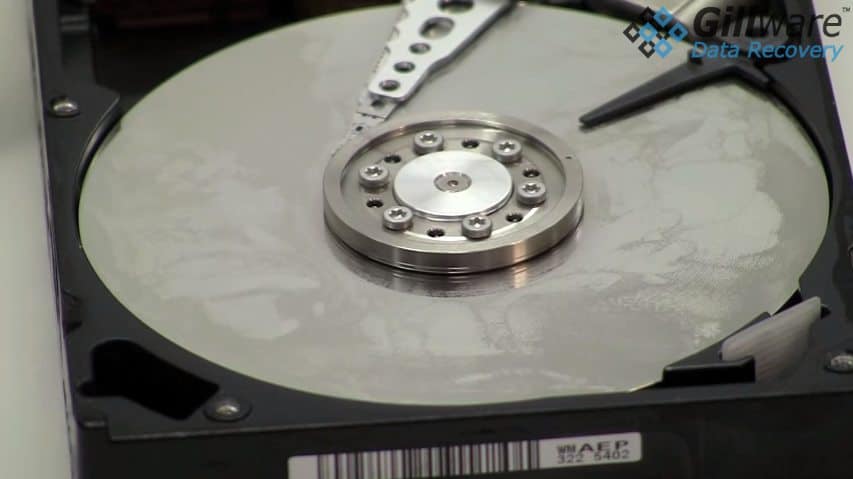
Most freezer trick believers nowadays will tell you to bag up your hard drive in an airtight bag (or double-bag it, even) and squeeze out as much air as possible before closing it. This is because of the moisture in the air around your hard drive. But this does little for the air already inside your hard drive, which can have some water vapor inside it.
While your hard drive sits in the freezer, the water vapor in the air around and inside your drive will condense into liquid water droplets, and then freeze into tiny ice crystals. And when you take the drive out of the freezer, that ice inside your drive will melt back into liquid water.
You do not want liquid water inside your hard drive, and you certainly don’t want to run a drive with water inside it. Our blog post on water damaged hard drives explains why in greater detail. Put simply, the hard drive freezer trick can easily lead to catastrophic outcomes if you’re not careful… or when you are careful.
The Hard Drive Freezer Myth: Busted
When hard drives crash, the problem rarely has anything to do with excess heat. When your hard drive is hot enough to fry an egg on, that could be a symptom of failure. But it’s a lot more probable that your previously functional drive was also very hot to the touch and you never noticed, because it was functional and you have better things to do than cradle functional hard drives like your infant child. If your drive has a stuck spindle motor, very little good will come of cooling it down.
Hard drives have strict conditions on which environments they can operate safely within for a reason. And that reason is because outside of these environments, hard disk drives will crash, often catastrophically. Hard disk drives cannot operate safely below 32 degrees Fahrenheit (unless they are placed in enclosures specially-designed for extreme environments).
When moving a failed hard drive from a cold environment to a warm one (as in, from your freezer to your desk), the hard drive needs ample time to begin to acclimate to the change in temperature, in order to prevent internal condensation from forming. But the whole point of the freezer trick is not to give the hard drive enough time to acclimate!
When a failed hard drive comes out of the freezer for another attempt and works again, it’s only a matter of luck. Exposure to cold will not restore a dead sector’s magnetic field or fix a corrupted partition table. It won’t make blind read/write heads suddenly see, nor will it salve the burn on a fried control board. Quite frankly, people with freezer trick “success stories” are just lucky they did not make their hard drives’ problems worse and eliminate the ability to recover data from the drive.
Why We Hate the Hard Drive Freezer Trick
Since 2004, our data recovery lab here at Gillware has seen countless drives subjected to the hard drive freezer trick. (They came to us, obviously, because the freezer trick hadn’t had any positive effect on the drive’s health.)
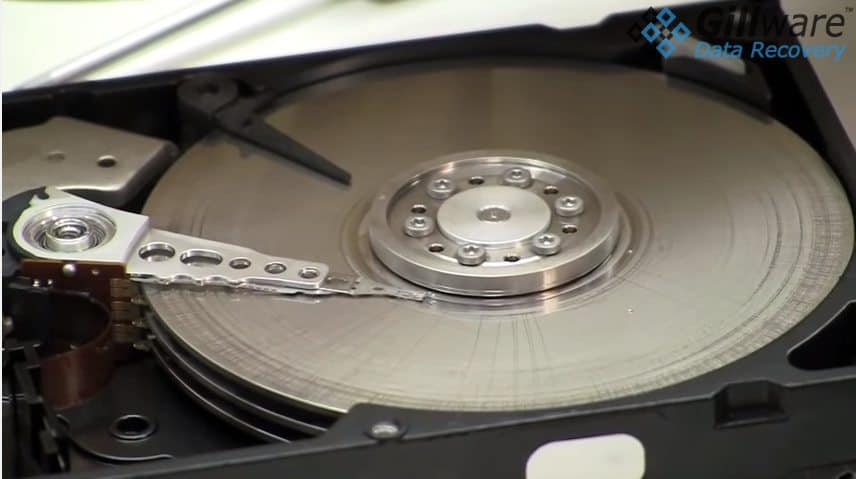
These hard drives were frequently in extremely rough shape. The drives had been run after they’d been frozen, and the read/write heads had crashed. The head left scratches and scoring on the platters due to the liquid water on their surfaces. Sometimes the liquid water had evaporated, redistributing the previously consistent layer of platter lubricant into pools that were now much higher than the fly height of the head stack.
In the years before we developed our platter burnishing technology, many of these were hopeless cases – using the freezer to recover data would effectively destroy the drive. And the saddest thing about them was that before the hard drives had been put on ice, their problems had been quite manageable. Corrupted boot sectors or partition metadata were things our logical data recovery engineers could eat for breakfast. To boot, many of these drives with physical failures had been recoverable prior to their arctic escapades. One bad decision later, they were unrecoverable even by our cleanroom recovery experts.
With our hard disk platter burnishing tools in hand, the freezer trick doesn’t provide nearly as insurmountable a challenge to data recovery anymore, but it still requires additional work from our engineers—work that wouldn’t have been necessary at all if the freezer trick would just go the way of the dinosaur already. This extra work has to go into the data recovery price tag and ends up costing the client more, turning a case that could have been $400-700 into something that costs twice that much or more.
But what really gets our goat about the freezer trick is seeing people in computer repair or IT departments—who really ought to know better—recommending it to people in need. For a computer repair technician, selling the hard drive freezer trick to or using the trick for people who need to recover data that’s important is simply irresponsible.
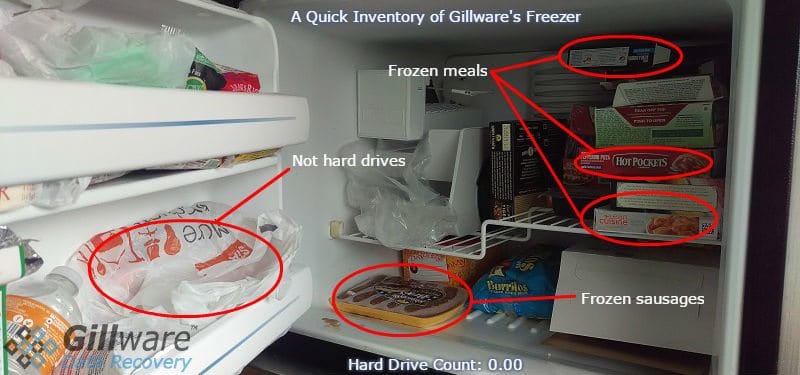
Data Recovery Specialists Don’t Freeze Hard Drives
If you go to our website’s staff page, you will notice that Batman’s nemesis Mr. Freeze is not on our payroll. You will not find any meat lockers in our data recovery lab. Nor will you find any hard drives nestled in our company break room’s freezer. If the hard drive freezer trick worked, we would probably make use of it. If the trick worked, Ziploc bags would be data recovery professionals’ primary tools to save our clients’ data. But it doesn’t work!
The hard drive freezer data recovery trick is unreliable at best and catastrophic at worst. It relies on an unfortunate misunderstanding of how hard drives work and how they fail. Anybody who works regularly with hard drives should have the presence of mind to leave the hard drive freezer trick in the garbage where it belongs.
It’s easy to see why the hard drive freezer trick remains so alluring, though. Data recovery from broken hard drives is one of those services nobody knows about until they need it. And few people expect it to cost as much as it does. Even with our competitive pricing, people still get sticker shock. But just like most DIY data recovery methods, attempting to bypass the expense of professional hard drive recovery using the freezer trick can just end up costing more in the end—and not just economically.
Frozen Hard Drive Proponents: Let It Go
The hard drive freezer trick is a pernicious, destructive DIY data recovery myth. It’s just as likely to ensure your data’s destruction as it is to do nothing at all.
Our engineers would like nothing more than to bury it once and for all. We have seen too many people harmed by it.
Like all DIY data recovery methods, the freezer trick is a gamble. When mission-critical documents or precious memories are at stake, do you really want retrieving them to depend on the spin of a roulette wheel?
Hard Drive Freezer Trick: Gillware’s Conclusion
Freezer trick proponents today usually have the presence of mind to at least warn people that the trick is destructive upfront. They say that the hard drive freezer trick should only be used as a method of last resort for getting your data back.
We, of course, disagree. We don’t think it should be used at all. It’s a bad idea and the consequences range from “nothing actually changes as a result” (thankfully) at best to “your hard drive’s condition is dramatically worsened” at worst. Nobody should be putting their hard drive into Ziploc bags and shoving it into a freezer when it starts to click or beep–especially when it starts to click or beep because at that point, the best and only hope for your data is a professional data recovery company.
If your lost data is important to you, your method of last resort should be a professional data recovery company, not your icebox.
We have the tools and skills to solve just about any kind of hard drive failure. Our engineers have seen just about every model of hard drive. We’ve got over a hundred thousand successful data recovery cases and counting under our collective belts from all manner of failed data storage devices. Gillware’s data recovery lab offers secure, professional, and world-class services with free inbound shipping, free in-lab evaluations, and a financially risk-free “No Data, No Charge” guarantee.
If your data isn’t important to you, then by all means, stick your failed hard drive in the freezer (not for data recovery, of course—just for fun). Freeze it in a block of ice if you want. Or you can turn it into a clock, or use it as a doorstop or a paperweight. There are plenty of weird and wonderful things you can do with a broken hard drive.
